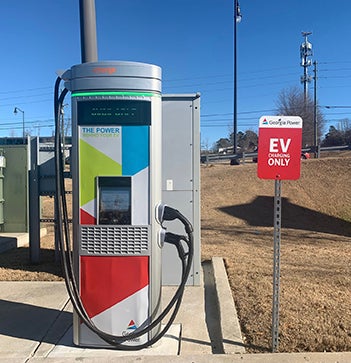Toyota Motor Corp. President Akio Toyoda stunned the auto world recently when he announced that Toyota would not be going “all in” on the electric vehicle trend.
As most car companies have already announced plans to move to an all-electric fleet, and some state governments are proposing future bans on piston powered vehicles, Toyoda’s comments to the Wall Street Journal caused pearl-clutching among some automotive journalists.
Opinion
However, Toyoda was only saying what most of us already know, and he seems to be a man keen to read up on automotive history.
“People involved in the auto industry are largely a silent majority. That silent majority is wondering whether EVs are really OK to have as a single option. But they think it’s the trend, so they can’t speak out loudly,” Toyoda was quoted as saying by the Wall Street Journal.
The first major problem that has come to light as more and more people purchase EVs is that the infrastructure to support them is terribly lacking.
In Augusta, there are only three locations to charge an electric vehicle, and they are all clustered near each other on Washington Road.
In fact, gas powered vehicles were not used for extreme long-distance travel until the advent of the national interstate highway system due to the lack of gas stations and somewhat primitive supply lines.
Even today, on trips through Texas and the Dakotas, there are signs on the highway warning motorists how many miles one must drive to reach the next gas station.
Speaking of supply lines, tanker trucks now service gas stations all over the nation; however, the fuel supply for an electric vehicle is the national power grid, which even green energy proponent CNN agrees is hopelessly outdated.
According to the U.S. Department of Energy, 90% of large power transformers (LPTs) used today are more than 40 years old and were never designed for the power output demanded in today’s world.
The Department of Energy issued a 55-page report that concludes “LPTs are custom-designed equipment that entail significant capital expenditures and long lead times due to an intricate procurement and manufacturing process.”
In layman’s terms, LPTs are expensive, each costing millions of dollars, and they take a long time to build.
California Gov. Gavin Newsome recently got egg on his face when, fresh off his announcement of a future ban on internal combustion engines, he was forced to plead with the public to not recharge their EV’s due to power shortages.
EVs work just like a cell phone. The more apps that are being used simultaneously, the faster the battery drains. New EV owners are finding out that the advertised battery charge mileage is significantly reduced when the radio, lights and air conditioning are all being used.
The re-charge factor may be one of the reasons Tesla’s stock has plummeted in recent weeks.
American buying habits also have to be taken into account: Americans like big vehicles.
U.S. manufacturers in the 1960s bent over backwards to persuade the public to buy smaller cars, but most buyers didn’t want them. When government emissions laws took effect, the Big Three simply detuned the engines on their land yachts and splashed velour fabric all over the interior to make up for the loss of horsepower.
During and after the oil crises of the 1970s, Americans did swallow driving smaller cars until SUVs became available, and now the average SUV is almost as long and wide as a 1976 Cadillac Eldorado Brougham Bicentennial Edition.
So, Americans want big two-ton vehicles armed with auto dim, seat warmers, back massagers, USB ports, back-up cameras and all-wheel drive, but the current technology simply cannot support all of that for anything other than in-town driving.
On a long trip, EVs are like Grandma in the backseat: they are in constant need of a pit stop.
Toyoda knows this, and that is why he refuses to buckle to what may become a government-mandated fad.
See you on the road!











